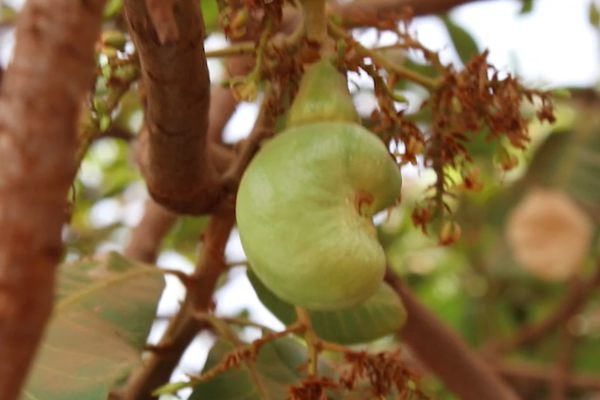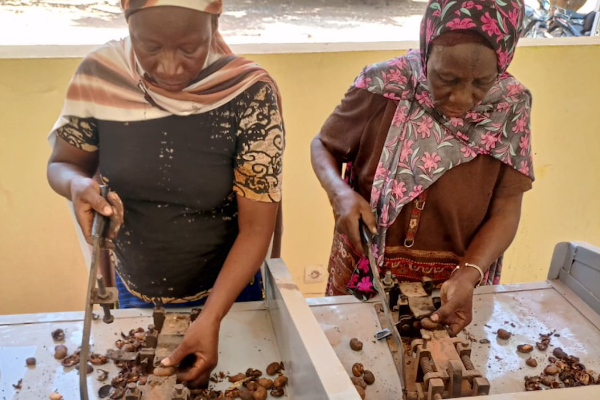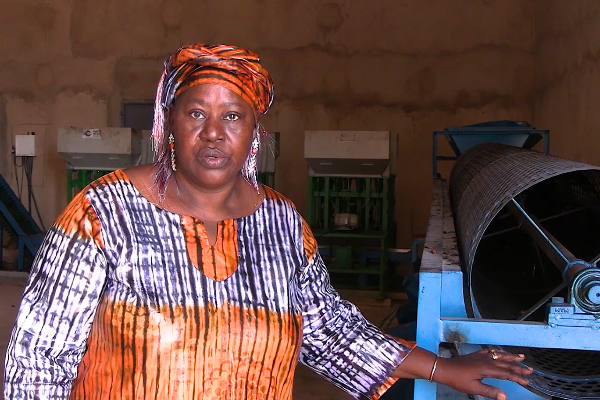
A transformative cashew initiative in Burkina Faso is equipping women and youth farmers with the tools, skills and resources to run sustainable agribusinesses. Through targeted support in agroforestry, processing, and market access, the Cashew Development Support Project in the Comoé Basin for REDD+ (PADA/REDD+) is redefining livelihoods while nurturing both economic empowerment and environmental resilience.
Completed in 2024 after seven years of implementation, the project revitalised Burkina Faso’s cashew industry—now the country’s third-largest agricultural export after cotton and sesame. It combined efforts to reduce rural poverty with ecological transition and inclusive participation, notably achieving a 95 percent implementation rate.
A joint investment by the African Development Bank (AfDB) and the African Development Fund—contributing $5.39 million of the $8.82 million total—PADA/REDD+ received co-funding from the Burkinabé government and the direct beneficiaries themselves. But beyond figures, its real legacy lies in the sustainable businesses and self-sufficient communities it helped build.
Agroforestry as a Business Platform for Women
At the core of the project was a strong focus on agroforestry and climate-smart agriculture. It led to the creation of seven tree parks and the planting of over 1.6 million improved cashew seedlings across 27,000 hectares. A third of these cashew agroforestry plantations are maintained by women, anchoring them as key agents of change in climate action and food systems transformation.
A total of 35,340 farmers—6,047 of them women—were trained in good agricultural and organic practices, enabling many to build profitable farming enterprises with long-term environmental benefits.
“This project is a blessing for us,” says Aramatou Barro, a cashew processor in Diéri. “Thanks to the income generated, we can send our children to school and keep them healthy. Before, we used to sell our products at rock-bottom prices, but now, with our own processing units, we control the entire value chain.”

(Source: African Development Bank Group (AfDB)
Finance and Tools to Scale Agribusiness
Access to capital has long been a barrier for rural cashew producers and processors. To change this, PADA/REDD+ forged an innovative financing partnership with Burkina Faso’s Caisses populaires banks and savings cooperatives. Through this mechanism, 103 microprojects were funded with approximately $500,000 in investment loans. Most of these projects were spearheaded by women and young entrepreneurs.
This financing enabled the creation of 9,580 additional “green” jobs—over 92 percent of which went to women. It also supported the modernisation of seven processing units, including the establishment of a new plant called “Tensya” in Toussiana, and the construction of three warehouses, one reserved exclusively for women cooperatives.
“Thanks to the project, we have been able to purchase six automatic shelling machines, which are twice as fast as our 25 manual shelling tables,” says Christiane Koné, a processor in Toussiana. These improvements have dramatically increased processing capacity and worker efficiency.

(Source: African Development Bank Group (AfDB)
Infrastructure and Training for Sustainable Value Chains
In Diéri, the project funded the construction of a dedicated women’s cooking and shelling centre, fully subsidised by the African Development Bank. It also provided 12 trucks and 45 tricycles to improve logistics and supply chain mobility—critical investments that helped small traders and cooperatives reach wider markets.
Isso Kindo, a cashew trader from Bobo-Dioulasso, attests to this progress: “Transport was our main obstacle. Today, thanks to the truck financed by the project, I can transport up to 60 tonnes of nuts from the towns of Banfora and Mangodara.”
Additionally, 96 cashew cooperatives were formalised and aligned with the OHADA legal standards, strengthening their governance and long-term viability. Over 600 people were trained in post-harvest practices, and nearly 500 stakeholders received environmental training—creating a new generation of climate-conscious agripreneurs.
Creating Opportunity for the Next Generation
The youth have also gained from the project’s multiplier effect. In Orodara, entrepreneur and processor Arzouma Zougouri recounts how the project helped expand his workforce. “The support has enabled me to better equip my processing unit. I’ve gone from 200 to 300 employees,” he says.
By blending productivity gains with climate mitigation through agroforestry, PADA/REDD+ has helped local businesses thrive while anchoring cashew farming in sustainability. Its inclusive model—focused on women, youth and ecological health—offers a replicable blueprint for rural development in West Africa and beyond.
With enhanced market access, modern processing tools, and well-structured cooperatives, women and young farmers in Burkina Faso are now running competitive, sustainable cashew businesses—turning what was once a low-income crop into a driver of economic independence and community resilience.







